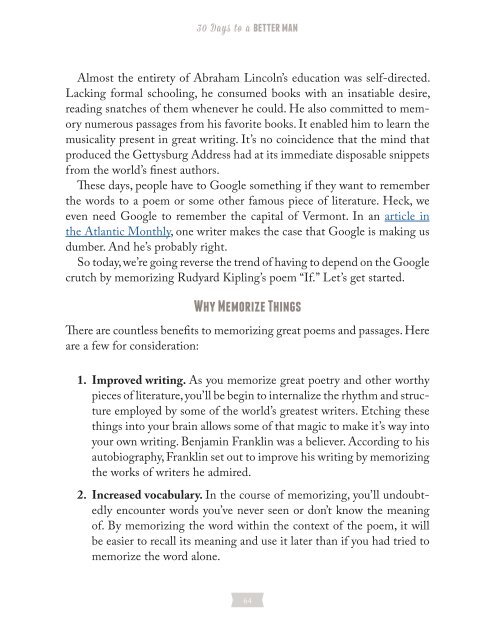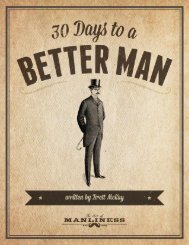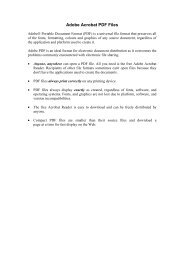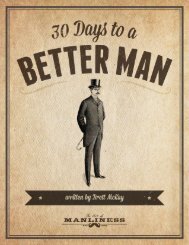588b1c58c8a68278cfc28555
Create successful ePaper yourself
Turn your PDF publications into a flip-book with our unique Google optimized e-Paper software.
30 Days to a better man<br />
Almost the entirety of Abraham Lincoln’s education was self-directed.<br />
Lacking formal schooling, he consumed books with an insatiable desire,<br />
reading snatches of them whenever he could. He also committed to memory<br />
numerous passages from his favorite books. It enabled him to learn the<br />
musicality present in great writing. It’s no coincidence that the mind that<br />
produced the Gettysburg Address had at its immediate disposable snippets<br />
from the world’s finest authors.<br />
These days, people have to Google something if they want to remember<br />
the words to a poem or some other famous piece of literature. Heck, we<br />
even need Google to remember the capital of Vermont. In an article in<br />
the Atlantic Monthly, one writer makes the case that Google is making us<br />
dumber. And he’s probably right.<br />
So today, we’re going reverse the trend of having to depend on the Google<br />
crutch by memorizing Rudyard Kipling’s poem “If.” Let’s get started.<br />
Why Memorize Things<br />
There are countless benefits to memorizing great poems and passages. Here<br />
are a few for consideration:<br />
1. Improved writing. As you memorize great poetry and other worthy<br />
pieces of literature, you’ll be begin to internalize the rhythm and structure<br />
employed by some of the world’s greatest writers. Etching these<br />
things into your brain allows some of that magic to make it’s way into<br />
your own writing. Benjamin Franklin was a believer. According to his<br />
autobiography, Franklin set out to improve his writing by memorizing<br />
the works of writers he admired.<br />
2. Increased vocabulary. In the course of memorizing, you’ll undoubtedly<br />
encounter words you’ve never seen or don’t know the meaning<br />
of. By memorizing the word within the context of the poem, it will<br />
be easier to recall its meaning and use it later than if you had tried to<br />
memorize the word alone.<br />
64


















